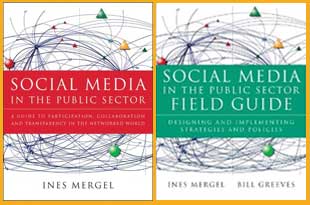Is a More Sustainable Olympics Possible?: Q&A With Maxwell Professor Matthew Huber
Organizers of the 2024 Paris Olympics are committed to creating the most sustainable Games ever—limiting new construction, sourcing local food and using 100% renewable energy, for example. But could a global event with millions of people from all over the…


 Mergel, whose book “Social Media in the Public Sector” and companion field guide are set for publication this fall, says that social media sites stand to gain even more significance as they take on functions typically associated with news organizations. In a partnership with USA Today, for instance, Twitter maintains an online “election meter” that tracks the candidates’ day-to-day popularity based on the number of positive or negative comments making their way through the twittersphere.
Mergel, whose book “Social Media in the Public Sector” and companion field guide are set for publication this fall, says that social media sites stand to gain even more significance as they take on functions typically associated with news organizations. In a partnership with USA Today, for instance, Twitter maintains an online “election meter” that tracks the candidates’ day-to-day popularity based on the number of positive or negative comments making their way through the twittersphere.